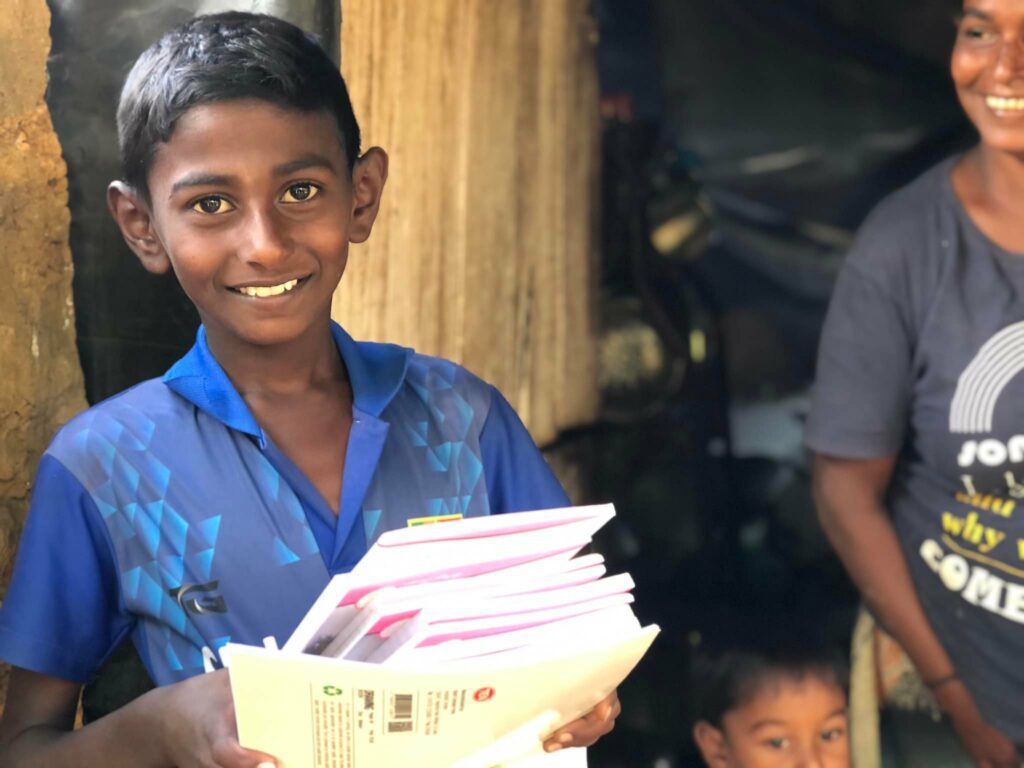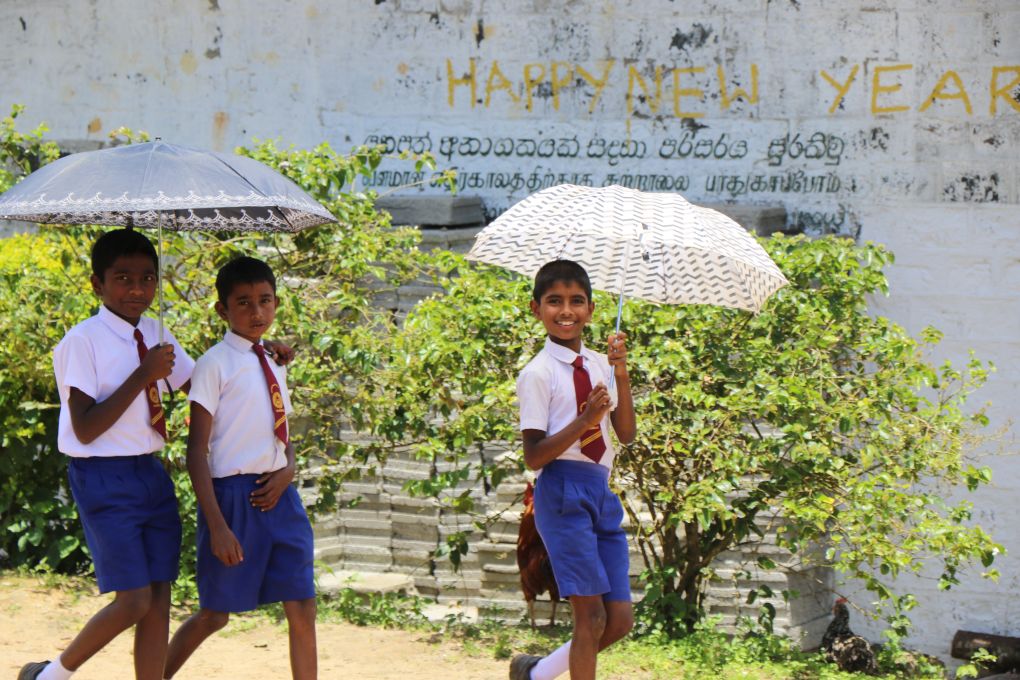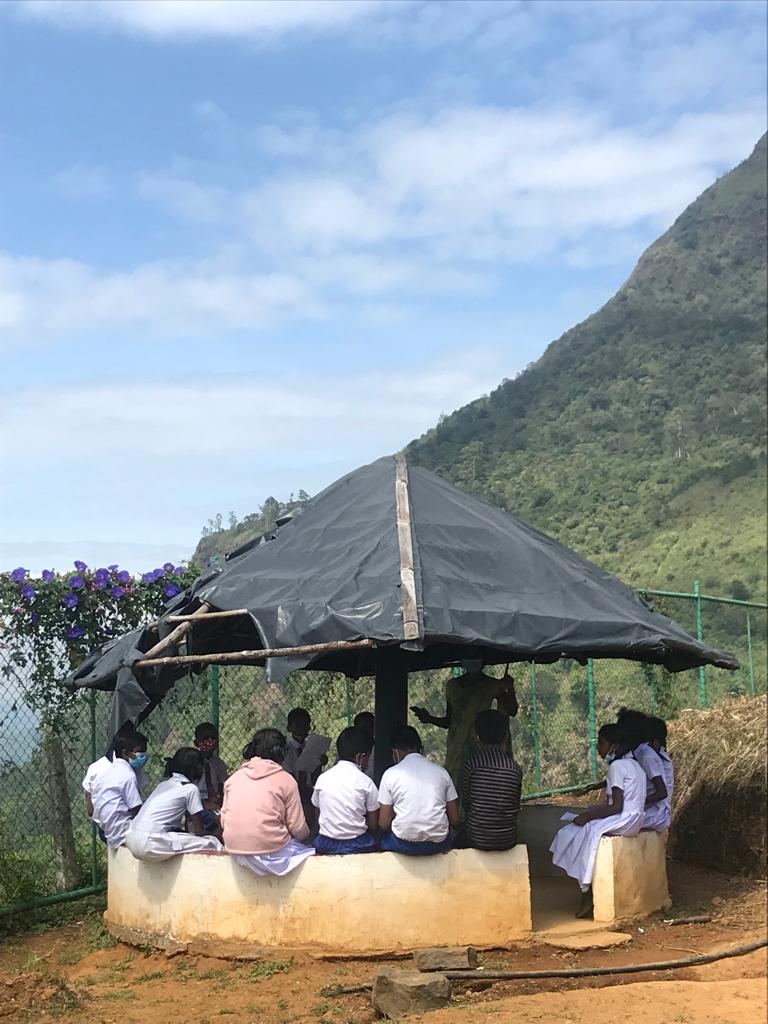


Educate for a better future – scholarship program – Tea plantation communities in Nuwara eliya
Sponsor Now
Background
Tea plantation communities in Sri Lanka are one of those deprived and marginalized communities. Most of these people live in barrack-type “line” rooms. These housing does not have needed facilities, ventilation or minimum space for these families to live. Since these line rooms are built attaching to each other, surroundings of the houses are often very unhygienic. Moreover, these estate communities are often found to be poorer when compares to the rural village communities due to weak human capital such as low level of literacy, lack of skills and inadequate social capital to work together and to link with external development agencies.
Children in tea planation communities have been deprived of many other rights and when it comes to access to quality education, it is no exception despite the fact that education is a fundamental child right. While Free education policy made it possible for all children to access free education regardless their cast, cast, ethnicity or any other differences, it also enabled the country to maintain higher, in fact the highest, literacy rate. However, there is a massive disparity among children when having access to quality educational opportunities. Education in the tea plantation sector in Sri Lanka is one of the great examples where the access to quality education is not looking very good compared to country’s overall picture of education. Even after 150 years of being main contributors of Sri Lankan economic development, education standards in tea plantation sector is still retrogressing. Even though there are government schools inside these plantations, the issues such as long and hard-working distance to school, lack of sanitation facilities in schools and lack of teachers in schools have led to many numbers of school drop outs in plantation communities. Moreover, when high poverty levels of these families have led many children to drop out of schools. Most of these children do not have a space at home to study or keep their books in order. Severe weather conditions in Nuwara Eliya are also one of the factors that has been playing a barrier for the children’s education in tea plantations in Nuwara Eliya.
Problem statement
There are many Children in tea plantation communities who drop out of schools because their parents can not afford educational expenses. The children who face milestone exams such as ordinary level examination and advance level examination face problems due to lack of teachers in their schools. Even though there are tuitions in the nearest town, most of them cannot afford tuition fees and travelling expenses. Moreover, most of these children’s rarely get new clothing, and shoes to go to schools/ classes because their parents cannot afford them. Current economic crisis has even worsened this situation with the hiking prices of stationaries, books, shoes and other educational materials.
A Program for Action – “Educate for better future”
“Educate for better future “initiative help the identified children with financial barriers to continue their education. The project provides a monthly assistance for the children to fulfill needs related to their education such as paying tuition fees and bus fares, purchasing new books, stationaries, shoes and sanitary pads.
How you can be part of the program?
- Long term sponsorship program: Sponsoring one identified child for their educational needs for a duration of 1 year to 5 years. Estimated monthly donation expected is 10 $ – 15 $ per month.
- One-time donation program: You can donate to our education program any amount you are willing. Even 1 $ can make a difference in child’s life. We will pool all the donations and utilize funds in our education program.
About Our Education Program
We have identified children who perform well in their education, yet have difficulties to continue their education due to the financial barriers. These children are identified through a close community screening. Criteria’s for selecting children for the program are Financial need of the child (family income), Vulnerability status and academic aptitude. Once the children are identified, our community development assistants sit with the children and their families to better understand the children’s requirements to improve their education. As the next step, the children will be registered in our “Education for Better Future” program. Once children are registered in our program, sponsors will be found for each child. Until the sponsors are found for children, each child will be benefited from our collective donation pool which will help them to afford educational requirements.
While the children are provided with required assistance, our community development officers closely monitor the progress of each registered sponsored child to ensure that the resources are utilized properly to improve their education. Our community development assistants will also play a mentoring role for these children to provide them with further guidance to improve their educational achievements. We also ensure to involve the parents of these children in this process to ensure the sustainability of the program.
Apart from the directly provided benefits, we have also established community-based child resource centers in each estate community. These child resource centers provide space and assistance for the children to further improve their educational requirements.
To read more about the benefits children receive from our child resource centers click below
A Space for education, skill development and Protection – Child Resource Centers (CRCs) by T-Field CDF
To read more about how our programs benefits children please visit
https://t-fieldchilddevelopmentfederation.com/
https://www.facebook.com/TFCDF
T-Field Child Development Federation, No 306, Windy corner, Blackpool, Nuwara Eliya

I would like to sponsor Long term sponsorship program: Sponsoring one identified child for their educational needs for a duration of 1 year